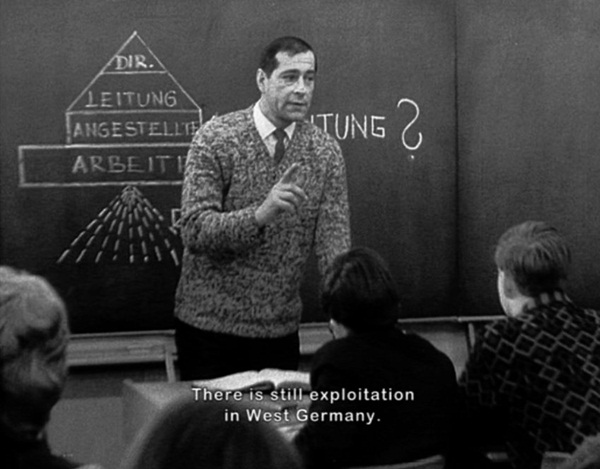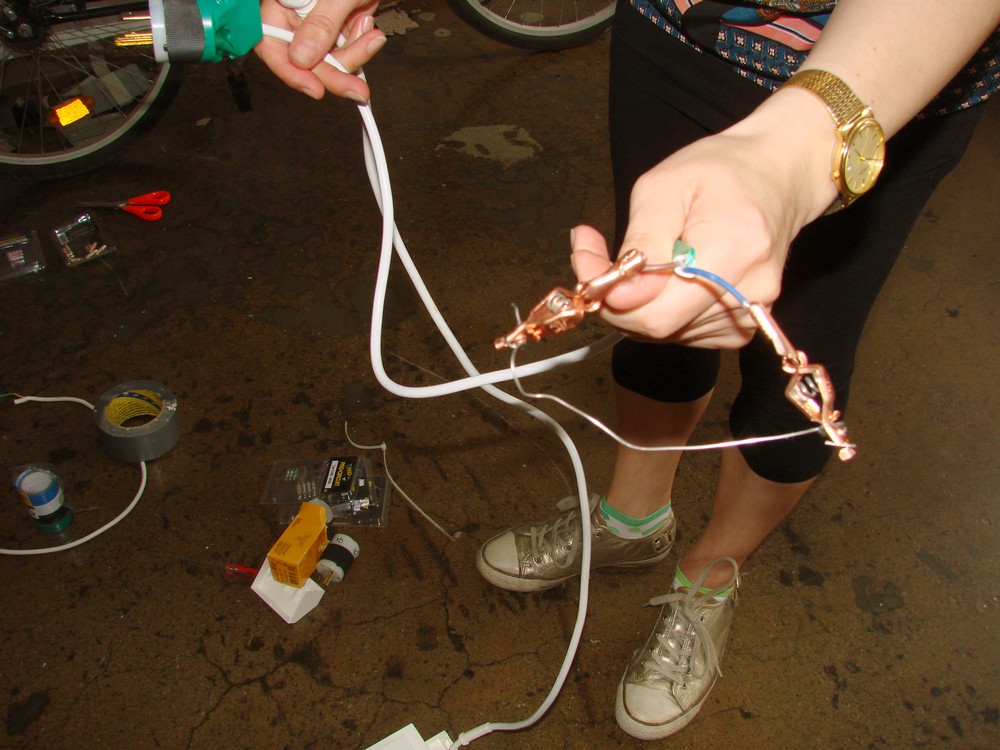Quoting Alexandre Kojève’s idea of the end of history and the subsequent institution of a new homogenous State[1], Giorgio Agamben argues: ‘the empty form of State tends to generate epochal contents that, in turn, seek out a State form that has become impossible.’[2] The artist Phil Collins chooses those at the centre of the reunification of Germany to represent this ‘end of history’ in his current work Ich esse keine Bananen mehr und trinke natürlich keine Coca-Cola. This new State formation, prevalent throughout post-WWII Europe, was particularly visible in Germany where the end of the German Democratic Republic (GDR) and the fall of the Berlin Wall was globally broadcast. It became an iconic event – yet an abstraction at that. This ‘end of history’ previously determined by different epochs and historical figures[3], is now an event – an appropriation of Being itself.[4] Thus the end of the GDR can only be understood by those intimately involved.
Ich esse keine Bananen mehr und trinke natürlich keine Coca-Cola, Collins’ recent exhibition in Kerlin, Dublin, consists of two parts: the first being a collection of photographs, the second, a film. The title is a direct quote from the film where a woman, happy within the GDR, recounts her reaction to seeing Helmut Kohl handing out bananas and Coca-Cola on Karl Marx Plaz after the fall of the Berlin wall: “I don’t eat bananas anymore and of course I don’t drink Coca-Cola”, she retorts.
The photographic work consists of a multitude of photographs, grouped and framed in the type of frame used commonly for intimate family shots – the type you and I might own. Some photographs are duplicates in different sizes, framed in close proximity, creating a stutter, a sameness. It is worth noting that photographs one would normally overlook, have in this instance been enlarged and centred; elevated by the artist somewhat deliberately. For Heidegger, it is through the work of art that ‘the nothing is singled out by its standing there…. it is what is dead through being separated.’ [5] We are witnessing the intimate detail of separation.
Kerlin itself has undergone a dramatic physical alteration, the space is now divided into two parts by a wall. This segmenting of space informs the work, whether intentional or not. The film work details the way of life within the GDR. We see the totalitarian State from within and ‘the politicisation of life’ [6] that promotes its ideology. Collins demonstrates this by focusing on two women, each fulfilled and happy within the work-life of the GDR, yet when they choose to marry foreigners, permission to marry and passport allocation had to be issued through the GDR State. The work is interspersed with reels of documentaries that serve to explain the way of life within the GDR such as its views on education and capitalism – the viewpoint that we often associate with our outside view of the GDR. The documentary view of a simplified end of State – one that was outmoded and ineffectual, even sinister. The intimacy of the monologues, however, remove this over-simplification and places the complexity of the end of State situation with the individual. In Jean Luc Nancy’s The inoperative community, man at the end of history becomes the inoperative.[7] The artist focuses here on teachers and researchers of Marxist-Lenin political philosophy within the GDR, a philosophy anathema to the unified Germany.
Ich esse keine Bananen mehr und trinke natürlich keine Coca-Cola is a very mature work by an artist that is self-assured. The film is beautifully shot and the photos, though unassuming in content, are intriguing. The conflicts at the heart of the re-unification of Germany are examined here in light of the individuals that were involved. A event characterised by the political has been made personal.
Hilary Murray is a writer who lives and works in Dublin.
[1]Kojève, Alexandre, 1952. Les Romans de la sagesse. Critique, p 60.
[2]Agamben, Giorgio, 1998. Homo Sacer, Sovereign Power and Bare Life, pp 60-61
[3]Ibid. 2
[4]Heidegger, Martin, 1976. Zur Sache des Denkens, Tubingen: Max Niemeyer.
[5]Ibid.
[6]Löwith, Karl, 1984. Der okkasionelle Dezionismus von Carl Schmitt. In Karl Löwith, Samtliche Schriften, ed. Klaus Stichweh and Marc B. De Launay, vol. 8. Stuttgart:Metzler.
[7]Nancy, Jean luc, 1982. La Communauté désœuvrée (The Inoperative Community). Trans. Minneapolis: University of Minnesota Press, 1991.




